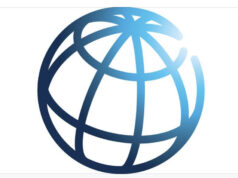/By Teshome Bedada/ Email: teshome2071@gmail.com
Indications are that Ethiopia is at a cusp of a revolution, at crossroads. Some who are old enough to remember the weeks and months leading up to the fall of the Derg regime are experiencing a Déjà vu. Sure enough, the continuing crisis facing the TPLF-dominated government both in Ethiopia and abroad has taken its toll on the fundamental pillars supporting the regime. Its legitimacy within and outside Ethiopia has taken a hit; its military prowess has encountered some setbacks here and there; its stanch supporters and cadres are realizing that their undoing is around the corner; its economic base has been showing signs of crumbling; and its leaders are in disarray. That said, TPLF propaganda that infected Ethiopians both at home and abroad has stood the regime in good stood. One area where the propaganda has been successful in establishing a more favourable opinion for the regime is that on economic growth and development. In fact, the regime has all these bogus ‘growth and transformation’ games to camouflage its economic propaganda. In this essay, I present arguments to expose the flaws in the rosy, yet deceptive, economic narratives the regime peddles.
The TPLF regime trumpeted a persistent, double-digit economic growth of Ethiopia. Credible evidence to support such claims is missing, however. Data from the IMF and the World Bank provide a substantially reduced figures of economic growth.
To what extent are the data credible? Some argue that the data are doctored by the TPLF regime and thus are untrustworthy. Relatedly, some dispute the reliability of the data used by the IMF and the World Bank by questioning the ability of these multilateral institutions to access credible data. The question of data credibility is an important one; attempts to answer these questions are welcome. However, I believe that by focusing too much attention on the veracity or otherwise of these data and its sources, we are overlooking other key questions surrounding TPLF’s deceptive game/narrative of ‘economic miracle’. To be candid, Ethiopia has witnessed some economic growth, likely with rates much lower than the regime publicizes.
Acknowledging this is useful as it helps us go past this issue and focus our attention on other, no less fundamental, flaws. Aside from the data credibility concern, the TPLF’s claim of ‘economic miracle’ suffers an array of logical and practical complications related to the issues of causation, development, and sustainability.
The TPLF and its cadres pretentiously declare that Ethiopia’s economic growth is a direct consequence of the policies adopted by the government. This argument is flawed as it confuses correlation with causation. Yes, TPLF reigned in a period of economic growth. However, in no way does that support the idea that TPLF’s policies caused the economic growth. Numerous, potentially interdependent factors contribute to economic growth. For example, developments related to globalization can contribute to economic growth. As well, injection of foreign capital through such means as foreign aid can stimulate the economy and lead to economic growth. One can mention a number of other possible factors. So, how can one isolate the effects of TPLF policies from those of other possible factors? Without observing a counterfactual case where another political power governed the country under similar time and conditions, it is not possible to understand the role, if any, of TPLF policies to the economic growth. In fact, evidences suggest that the economic growth is attained mainly because of the foreign capital injected into the economy through massive foreign aid/debt and spillovers from globalization.
In fact, there are reasons to believe that TPLF has played a rather counterproductive role in the economic growth. Its restrictions on liberalizing the financial and telecommunication sectors, for example, has been costing the country huge fortunes in the form of missed in-ward foreign direct investments. The following statements from the Economist magazine provide a telling illustration of how the TPLF is detrimental to Ethiopia’s economy:
“The official reason for keeping Ethio Telecom a monopoly is that the government can pour its claimed annual $820m profit straight into the country’s grand road-building programme. In fact, if the government opened the airwaves to competition, as Kenya’s has, it could probably sell franchises for at least $10 billion, and reap taxes and royalties as well…” (The Economist, 2016)
In addition to the logical fallacy regarding the cause-effect relationship described above, the implication of the economic growth for the wellbeing of Ethiopians in general is an important issue to consider. This requires examining if the economic growth has translated to economic development. Economic development, unlike economic growth, considers a wide-array of factors associated with improvements in the quality of life of the general population. Has the economic growth improved the social, economic, and political welfare of most Ethiopians? The overwhelming evidence to the contrary makes it difficult to answer this question in the affirmative. The income inequality between the haves and the have-nots is gaping; famines that put millions of Ethiopians in danger have been more frequent; the quality of education has reached rock bottom; and the economic and social freedom of Ethiopians has been denied. In fact, the regime has used economic gains to sustain its firm grip on power. Major cash-generating sectors of the Ethiopian economy are under a complete control of the TPLF and its associates. Corruption is so rampant that even the regime has acknowledged its widespread existence. The effect of all these is a life of deprivation, misery, and despair for the vast majority of Ethiopians. One may ask: hasn’t this been a default state of most Ethiopians over the last several decades, even before the reign of TPLF? A reasonable answer is yes it has been, but there is one major difference this time. For example, for all the ills of the Derg regime, it can be reasonably argued that it had the intention to advance the collective interests of Ethiopians. In contrast, the TPLF is a bandit—intent not on seeing Ethiopians prosper but on looting whatever wealth Ethiopia can generate and/or attract.
The third problem with the economic growth narrative is that it gives no attention to the sustainability of the growth. Sustainability requires efforts toward avoiding or limiting any social tensions that may arise in the country.
However, TPLF seems to feed off such social tension. In fact, it deliberately creates rift between different tribes and sects; creates and/or capitalizes on fault lines; and alters historical accounts or generate their own to breed animosity between or among people. While this serves the purpose of preserving their political and economic power, the danger it poses to the sustainability of Ethiopia’s economic development is conspicuous. In fact, these social tensions which are of TPLF’s creation can also prove to be causes for its demise. The current crises the regime is facing in the Oromia and Amhara regions can attest to this possibility. Another important prerequisite for the sustainability of economic growth has a lot to do with whether the growth draws on the development of national human capital (through emphasis on education), economic and political institutions, and the motivation and full-fledged participation of Ethiopians from all walks of life. Existing evidence attests to the fact that these crucial elements are missing and hence it’s only a matter of time before the economic growth comes to a screeching halt.
In conclusion, TPLF’s propaganda that it has brought about an economic growth and that Ethiopia has registered double-digit economic growth doesn’t pass muster on multiple grounds. As well as the questions on data credibility, we need to raise questions of causality, development, and sustainability to fend off threats from such deceptive propaganda and foster awareness among those who are sitting on the fence.
October 2017 Toronto Canada
























